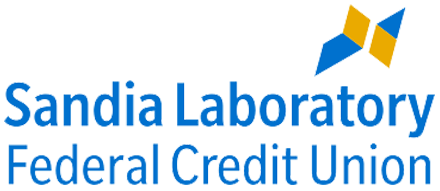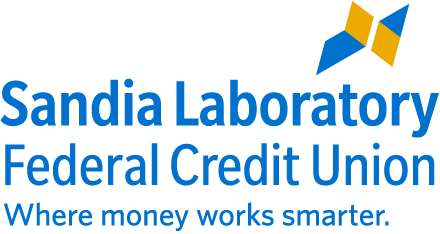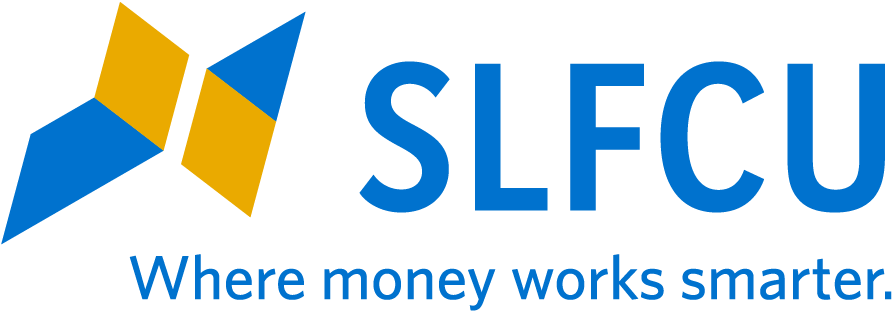Frequently Asked Mortgage Questions
If you're thinking about buying a home, get started with this general mortgage information, including definitions of mortgage terms and helpful tips from SLFCU loan officers. Then, call us at 505.237.7161 or toll-free at 800.947.5328, extension 7161, or email us at mortgages@slfcu.org to discuss your specific needs.
Apply Now Estimate Your Payments View Our Rates
"Do your research. Choose a real estate agent who matches your personality. Look at other loan programs, too. You have to feel comfortable with your loan. I'll look over your other loan offers and answer your questions about them. Don't jump on the first thing you see. This is a big decision."
- SLFCU Loan Officer
"Don't let anyone pull your credit report until you are ready to apply for your loan. I tell members, 'I gave you a quote with a payment, rate, and closing costs without pulling your credit. Other financial institutions should be able to do that, too.'"
- SLFCU Loan Officer
"Come to SLFCU with all of your questions. We make it easy for you. We are with you for the whole process."
- SLFCU Loan Officer
 Apply online, in person, or by phone. We strongly recommend that first-time homebuyers meet with a home loan officer. Call 505.237.7161 or toll-free at 800.947.5328, ext. 7161 or email mortgages@slfcu.org.
Apply online, in person, or by phone. We strongly recommend that first-time homebuyers meet with a home loan officer. Call 505.237.7161 or toll-free at 800.947.5328, ext. 7161 or email mortgages@slfcu.org.
 To determine how much you can borrow, we look at your credit score, debt-to-income ratio, and down payment.
To determine how much you can borrow, we look at your credit score, debt-to-income ratio, and down payment.
We lend up to 95% of the purchase price or the appraised value of the home (whichever is lower) if you have owned a home before. For first-time homebuyers, we lend up to 97%. Qualified first-time homebuyers have the option of a down payment as low as 3%.
To determine your debt-to-income ratio, we look at your income and monthly obligations, such as credit card debt, vehicle loans, and student debt. See a list of documents we’ll need to verify your income.
"People often have a good idea of how much they can afford for a monthly payment. They say, ‘I pay this much in rent, so this is my budget.’ And remember that you don’t want to be ‘house poor.’ Don’t spend so much on your new home that you don’t have money for anything else."
- SLFCU Loan Officer
"Consider the cost of the house as well as the price of the house. Don’t forget to budget for utilities, insurance, repairs, and furnishings, as well as mortgage payments."
- SLFCU Loan Officer
No, you do not need a 20% down payment. With a good credit history, you can put down as little as 5%. Qualified first-time home buyers have the option of putting down as little as 3%.
SLFCU can lend 80% on a first fixed-rate mortgage and finance the rest with an adjustable rate second mortgage. With this loan structuring, you avoid paying Private Mortgage Insurance (PMI).

When you finalize your mortgage, you pay the down payment, lender’s fees (including points for a fixed rate mortgage and origination fees), and third-party fees. Get specifics about your potential closing costs with a personalized quote.
The earnest money you paid when you signed a purchase agreement is applied to your down payment. Closing costs are usually paid by cashier’s check.
"I pull a detailed list of closing fees and explain the difference between third-party fees and origination fees. Compare these origination fees when shopping for your mortgage."
- SLFCU Loan Officer
"You can – and should – negotiate closing costs when you are purchasing a home. The seller generally pays for the costly things like the appraisal and title fees, but you have to ask for it. This can make a big difference to your total closing costs."
- SLFCU Loan Officer
"Points are used to buy down the interest rate by paying that amount up front. One point equals 1% of the loan. There are no points on SLFCU’s adjustable rate loans."
- SLFCU Loan Officer

Yes, SLFCU offers fixed rate mortgages with term options that fit your budget.
You may choose to pay points to lower your interest rate, but you won’t pay private mortgage insurance (PMI). Instead, we can lend 80% on a first, fixed rate mortgage and finance the rest, up to 95%, with an adjustable rate second mortgage.
Your fixed rate loan – from application to loan origination and beyond – is serviced by SLFCU. When you make a payment or have a question, you’ll talk to the professional, friendly staff at SLFCU.
Beyond the amount you’re borrowing, the biggest factors impacting the cost of a fixed rate mortgage are your rate and closing costs. You can’t simply compare one financial institution’s fixed rates against another’s; the advertised rate could include the cost of points, which lower the rate but increase your closing costs.
If you’ve gotten loan estimates from more than one lender, compare the rates and fees, including closing costs, on each document. If you expect to stay in your home (without refinancing) for a long time, it might make sense to lower your rate by paying points.
"We can help you by calculating how long it will take to make up paying for discount points."
- SLFCU Loan Officer

Make an appointment with a loan officer to discuss your specific situation and learn the differences between SLFCU's fixed rate mortgages and our 5/5, 7/1, and 15/15 adjustable rate mortgages (ARMs). Call us at 505.237.7161 or toll-free at 800.947.5328, ext. 7161, or email us at mortgages@slfcu.org.
With a fixed rate, your rate and principal payment won’t change for the life of the loan, but closing costs are higher. With the 5/5 ARM, rates and payments are locked in for five-year periods. With the 7/1 ARM, rates and payments are locked in for a seven-year period. SLFCU’s 15/15 ARM locks in a rate lower than a typical fixed rate mortgage for the first 15 years. All of our ARMs combine the low rate of an ARM with the stability of a fixed rate mortgage.
Most people refinance or sell their home and buy another one within five to seven years, so high closing costs can add up quickly. SLFCU’s ARMs offer competitively low closing costs.
In the following common situations, an SLFCU ARM lets members take advantage of our competitive interest rates, fixed rates for the initial loan period, low closing costs, and rate caps:
- You are a first-time homebuyer. Is this a starter home? Will there be enough room in your new home if your family grows? Is there a chance you will relocate for work?
- You intend to pay off your loan early. If you have funds from the sale of your previous home, an inheritance, or high income, you may pay off your balance sooner.
- You are refinancing. Perhaps you need to use the equity in your home for college tuition, renovations, or debt consolidation.
"Think about your future. Do you plan to live in this home more than five or ten years?"
- SLFCU Loan Officer
"Everyone starts out thinking they want to lock in a fixed rate, but don’t forget about those high closing costs. We’re happy to talk about what works best for you."
- SLFCU Loan Officer
 An escrow account is established when you originate a first mortgage loan in which money for insurance and tax bills are held by SLFCU. When those bills are due, we’ll pay them on your behalf. Here’s how it works:
An escrow account is established when you originate a first mortgage loan in which money for insurance and tax bills are held by SLFCU. When those bills are due, we’ll pay them on your behalf. Here’s how it works:
- We add together the annual amount of any required insurance premiums (such as homeowners and flood insurance, if applicable) and an estimated annual amount of property taxes that will be due for the year.
- This amount is divided into 12 equal payments, and that amount is added to your monthly mortgage principal and interest payment. Depending on the timing of your closing and your insurance and tax payments, you may need to make an initial escrow deposit at closing.
- When you pay your monthly mortgage payment, SLFCU will separate the amount to be paid to your mortgage loan and the amount that will go into your escrow account.
- When an insurance or tax bill is due, SLFCU pays each bill on your behalf using the funds in your escrow account.
Most members find it helpful to have SLFCU escrow these costs. There’s no worry about missing a payment or paying a large bill that is only due once or twice a year. And members earn interest on the funds held in their escrow accounts.
If you prefer to manage these bills on your own, you may choose to do so if you meet certain qualifications. Contact us for more details. Call us at 505.237.7161 or toll-free at 800.947.5328, ext. 7161, or email us at mortgages@slfcu.org.
"Having an escrow account tied to your mortgage alleviates the stress of saving for and paying your taxes and insurance, with less paperwork. Think of it like an automatic deposit you make each month into a savings account that is just for taxes and insurance."
- SLFCU Loan Officer
 After you decide which mortgage product works best for you, it’s time to apply for your loan.
After you decide which mortgage product works best for you, it’s time to apply for your loan.
- Gathering Your Information and Documents (Preparation time approximately 1 hour)
Use this checklist to make sure you have everything you need.
- Apply for a Mortgage (30 to 90 minutes)
Apply online, in person, or by phone. We strongly recommend that first-time homebuyers meet with a loan officer. Call us at 505.237.7161 or toll-free at 800.947.5328, extension 7161, or email us at mortgages@slfcu.org.
- Processing the Loan (typically 25-35 days)
Title work and the appraisal are normally ordered at this time, and you will need to provide your homeowner’s insurance information. Your loan officer and processor will verify information such as:- Employment or income
- Funds for a down payment
- Explanations for late payments or a gap in employment history
- A tax lien or other negative credit issues
- Past collections issues
Don’t worry if we call to get more information; this is normal. Application information is updated throughout the entire process.
The mortgage loan processor reviews your application to make sure that it paints an accurate picture of your financial situation and submits your application to the underwriter.
- Final Underwriting Approval (3 to 5 days)
The underwriter reviews your loan documents in order to make a decision about approving your loan. If your loan officer tells you there are conditions – requests from the underwriter for additional information – and asks for additional information, don’t delay. This can be the stage that slows the loan process, often because information must be retrieved from various sources. After final underwriting, the loan is prepared for closing. Scheduling and coordinating the closing with you and the title company is the next step. Gathering final documentation from the title company will be completed right before your closing.
- Closing and Funding (4 to 10 days, depending on type of loan)
The closer prepares your loan documents for signing, then you review and sign the paperwork at the title company, and the closer funds your loan.
Use this checklist to make sure you have everything you need.
The purpose of an appraisal is to ensure that we’re making a loan based on the true, current market value of the home or the purchase price, whichever is lower. An appraiser looks at similar properties that have sold recently in the area and makes adjustments for specific features or upgrades of the home being appraised.
If the appraised value is lower than the purchase price, generally the seller will renegotiate the price, or the buyer could pay more than the appraised amount (making a larger down payment) or cancel the purchase agreement.
"We don't want you to pay too much for your new home. There's usually an appraisal contingency in the purchase agreement that allows you to renegotiate your offer if the appraisal value comes in low."
- SLFCU Loan Officer
Some definitions from CUNA Home & Family Finance.
Mortgage Disclosure: Maximum loan-to-value is 80% for all fixed rate mortgages. Rates subject to change; check with SLFCU for current rates. If loan does not close, fees incurred will be charged to the member. Available rate based on credit history. Not everyone will qualify for lowest rate. All loans subject to credit approval. Contact SLFCU for details.
5/5 Adjustable Rate Mortgage Disclosure: Rate for the remaining term adjusts every five years. Each adjustment is capped at 2%, and the rate will never increase more than 5% above the origination rate. Rate is based on the then-current index plus margin, rounded to the nearest eighth of a percentage point, and is subject to the floor rate.
7/1 Adjustable Rate Mortgage Disclosure: Rate for the remaining term adjusts annually after the initial seven-year period. The rate cannot increase or decrease by more than 3.5% at the first adjustment, or by more than 2% at each annual adjustment after that. Rate is based on the then-current index plus margin, rounded to the nearest eighth of a percentage point, and is subject to the floor rate.
15/15 Adjustable Rate Mortgage Disclosure: Rate for the remaining term adjusts once after the initial 15-year period and is capped at 6% above the loan origination rate. Rate is based on the then-current index plus margin, rounded to the nearest eighth of a percentage point, and is subject to the floor rate.



